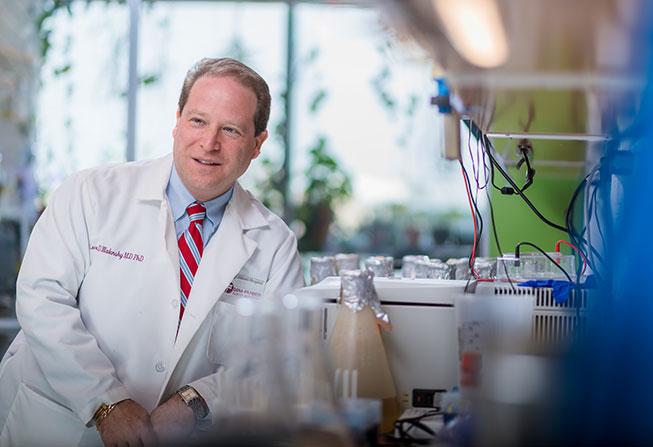Pediatric Drug Discovery and Cancer Biology

Researchers in the Department of Pediatric Oncology investigate the molecular mechanisms of multiple cancers, focusing on the mechanisms that underlie fundamental processes such as cell differentiation, cell division, genome stability, gene expression, and chromatin modeling.
We also integrate multiple disciplines in order to discover and develop novel interventions or drugs to manipulate therapeutic targets, and ultimately drive preclinical and clinical studies to reach the goal of personalized medicine. Our translational pipeline has led to multiple clinical trials implementing precision medicine approaches led by Dana Farber/Boston Children's Cancer and Blood Disorders Center.
Activities in Our Department
- Basic research of molecular mechanisms underlying cancer to define novel therapeutic targets; and preclinical research to adapt observations from the laboratory to the clinic
- Working closely with the Chemical Biology Program to test novel small molecule probes, including inhibitors and degraders, and stapled peptides in pediatric cancer
- Extensive modeling of therapeutic studies in murine models, including human cell line xenografts and patient-derived xenograft models
- Development and characterization of new patient-derived xenograft models of pediatric cancers
- Research on basic cellular mechanisms hijacked by cancer, such as cell division and differentiation
- Deep understanding of how chromatin structure/function affects oncogenic gene transcription
- Utilization of structural biology and proteomics to solve structures of key molecular players that drive cancer, and to map their interactions with other cellular partners
- Research defining mechanisms of chromosome instability in cancer
Current Work in Our Labs
The Armstrong Lab develops and utilizes mouse models of pediatric leukemia for testing novel therapeutic approaches that target chromatin complexes.
The Crompton Lab focuses on identifying new treatment approaches for patients with pediatric sarcomas.
The George Lab focuses on targeting aberrant oncogenic transcription in pediatric solid tumors through the disruption of cyclin-dependent kinases with critical roles in transcription regulation. This Lab studies transcriptional and epigenetic deregulation of gene expression in cancer cells, focusing on cyclin-dependent kinases with major roles in transcription.
The Golub Lab focuses on discovering and understanding the genetic underpinnings of cancer. Investigators in the lab use a variety of approaches to reveal the molecular mechanisms underlying cancer, with the goal of contributing knowledge that will help transform the practice of cancer medicine.
The Kadoch Lab focuses on understanding the structure and function of large, macromolecular machines called ATP-dependent chromatin remodeling complexes, and defining the mechanistic basis of locus-specific and genome-wide retargeting.
The Orkin Lab focuses on stem cell biology, particularly the development and function of the blood system, the relationship between cancer and stem cells, and the mechanisms responsible for self-renewal of stem cells and the switch from fetal to adult hemoglobin.
The Pellman Lab uses a combination of genetics, biochemistry, and live-cell imaging to study cell division and the maintenance of genome stability.
The Stegmaier Lab focuses on the integration of "omic" approaches for the identification of new protein targets and small-molecule modulators of malignancy, with an eye toward clinical translation.
The Walensky Lab focuses on the chemical biology of deregulated apoptotic and transcriptional pathways in cancer.